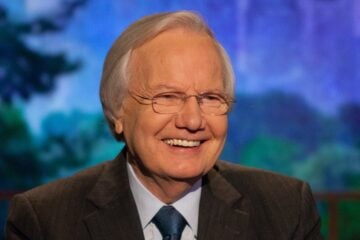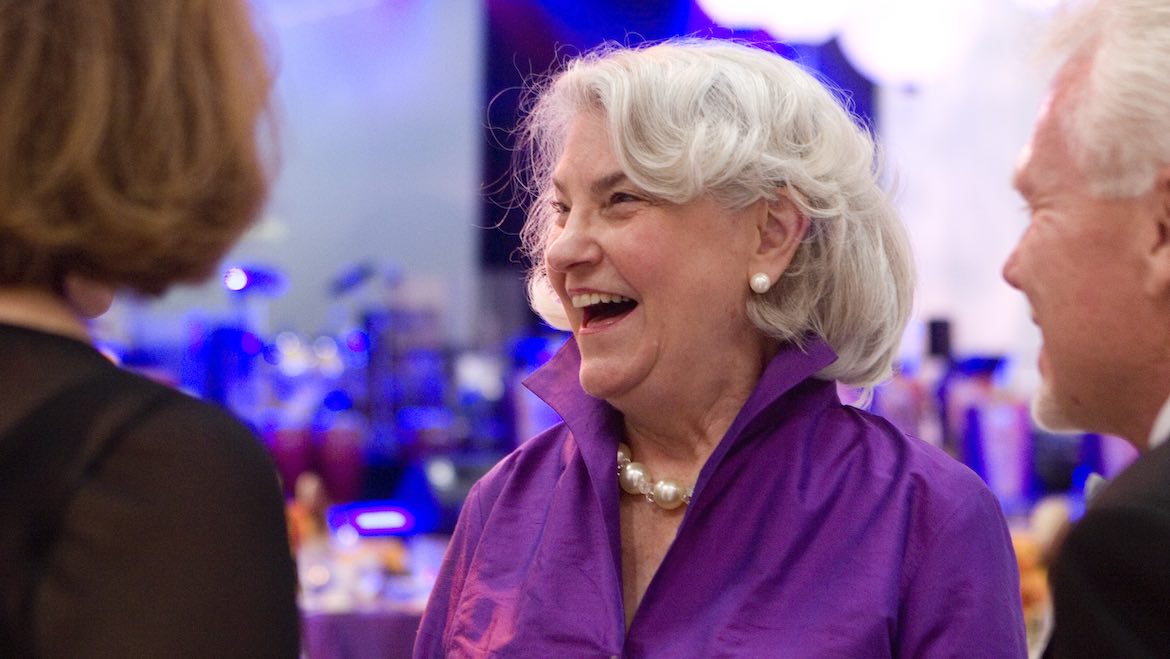Weiss makes v.p. with endorsement of NPR newsroom
Weiss, who had been interim news v.p., moves up from her previous job as senior editor of the national desk to succeed Bill Marimow, who became editor at the Philadelphia Inquirer. Marimow, a Pulitzer Prize-winning print reporter, was credited with strengthening NPR’s investigative reporting during more than 2½ years at NPR, including eight months as top news executive.
The announcement to the NPR News staff capped an exceptional week for Weiss, who was offered the promotion April 3 and learned the next day that she would share a Peabody Award. Weiss and two colleagues — correspondent Daniel Zwerdling and producer Anne Hawke — won a Peabody for December’s investigative report on the military’s treatment of soldiers returning from war with emotional wounds (story).
Weiss, who had been asked to stay mum about the new job until April 5, froze in confusion when colleagues kept congratulating her, not realizing they referred to the Peabody. “I thought—God!—they know and they’re not supposed to know!”
News of the promotion went down well in the April 5 meeting, which was piped around the world to NPR bureaus. A roar of applause erupted when Jay Kernis, senior v.p. of programming, named Weiss as the new v.p.
“I think the newsroom was very proud that someone like Ellen, who came up through the ranks and led such change, is now in this position,” Kernis said. “This is someone who has total understanding of the newsroom and where we need to go in terms of becoming a digital media company.”
“The fact is, Ellen earned this job not only on the basis of the last 25 years but for what happened during her interim period,” Kernis said. “She did a tremendous job.”
Kernis worked with Sucherman Consulting Group, a national search firm specializing in media, to consider an extensive field of candidates. An initial pool of 183 resumes were reviewed and narrowed to 80 interviewees, including 22 applicants with experience in public broadcasting, Kernis said. A half-dozen candidates were considered as finalists. Weiss didn’t throw her hat into the ring until “many, many weeks into the process,” he said.
Weiss was the favored candidate among more than 100 members of the news staff, who signed a letter to NPR management that gave an “enthusiastic appraisal of Ellen’s talents” and responded to newsroom worries that she “was going to be overlooked,” said a member of the news staff who requested anonymity. “There was a feeling among some of the staff that we needed not only a broadcast person but someone who did understand the culture and problems here.”
Concerns about the consequences of hiring a news v.p. who lacked public radio experience extended beyond NPR headquarters. “I was worried about them bringing in an outsider who would take some time to figure it out,” said Sam Fleming, news director of WBUR in Boston. He’s “really happy” with Weiss’s promotion “because she really understands what we do,” he said.
“In the newsroom, we love her because she feels passionate about radio,” Zwerdling said of Weiss. “She’s the first top manager that’s grown up doing radio . . . She understands what we need to do every day to put stuff on the air.” Weiss’s long NPR experience, and her excitement about changes ahead that worry many news staffers, “makes us all feel more comfortable.”
Weiss joined NPR in 1982, drawing on her senior-thesis knowledge about Egyptian President Anwar Sadat to talk her way into a job answering phones on the newsroom’s Washington desk. Her first job after graduating from Smith College and moving to D.C. had been as a paralegal but she promptly quit and reported to work at NPR the next day.
“I am very proud and somewhat intimidated to say that Ellen’s second assignment was to help research herbicides for a project I was doing on pesticides,” Zwerdling said.
The lesson she learned from Zwerdling, Weiss said, was “everything a reporter needs to know—don’t get off the phone without six other phone numbers.”
Weiss worked her way up through various jobs — director, field producer, editor and senior producer — to become e.p. of All Things Considered in 1989, a job that she held for 12 years. She led the newsmagazine through its 1995 expansion to two hours a night and took the hosts to the news scenes, including Berlin during the collapse of communism, San Francisco during the 1989 earthquake and Los Angeles during the 1992 riots. “I was really proud that the show had a physical presence with a host and enterprise reporting on most of the major stories of the time,” Weiss said.
In 2001 she became senior editor of the national desk, a unit that had been in turmoil after a succession of ineffective managers. “She took over a desk that was “a backwater, a dumping ground,” said Dale Willman, an NPR News veteran who now heads Field Notes Productions in Saratoga, N.Y. “She brought it back, solidified it and increased its importance within the building.”
Weiss reorganized the desk “so that it made better sense and also empowered and made the editors at the desk feel incredibly important to the organization,” Fleming said. “That translated into consistently better stories from NPR reporters around the country and from stations, and raised the standards in and out of the building.”
“It was a huge advantage to have someone from a program come to the desk,” Weiss said. “Before, there wasn’t clarity on what the shows needed on a daily basis.”
In recent months as interim news v.p., Weiss made significant progress toward NPR’s strategic goals, including creation of a multimedia “convergent newsroom,” according to Kernis.
After several experiments, a newsroom hub — where a team of editors will conceive audio, text, video and other treatments of breaking news — becomes permanent on April 11. NPR News also hired a team to staff its “continuous news desk,” which will create fast-turnaround web reports on breaking news for NPR.org, Kernis said.
Weiss, 48, is the mother of two boys — Ari, 14, and Danny, 16 — and is married to David Saperstein, a rabbi, lawyer and director of the Religious Action Center. Her family resides in Washington, D.C.
EARLIER ARTICLES
All Things Considered celebrates 30 years; Weiss is executive producer.
Weiss assigned to head NPR National Desk, leaving ATC, 2001.
Weiss edited NPR report on emotional damage to Iraq vets, which won Peabody and IRE awards.
HER PREDECESSORS
![]() Bill Buzenberg, 1990 to January 1997
Bill Buzenberg, 1990 to January 1997
![]() Jeffrey Dvorkin, 1997 to February 2000
Jeffrey Dvorkin, 1997 to February 2000
![]() Bruce Drake, August 2000 to September 2006.
Bruce Drake, August 2000 to September 2006.
![]() Bill Marimow, February 2006 to October 2006
Bill Marimow, February 2006 to October 2006
RELATED LINKS
“Soldiers Saw Army Ignores, Punishes Mental Anguish,” prize-winning NPR report edited by Weiss.
NPR press release on promotion.
Weiss’ predecessor, Bill Marimow, came to NPR from newspapers and after two years as managing editor served just nine months as v.p. The New York Times reported he was promoted to v.p. over the objections of a search committee. He is now editor of the Philadelphia Inquirer.







